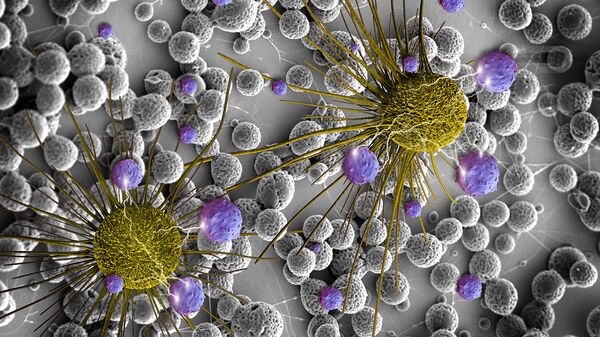The formation of new blood vessels, a process called angionesis, is a normal part of growth and healing but also plays a role in several diseases, including cancer. Several anti-angiogenic drugs have been developed to treat cancer, but tumors often become resistant to the treatment.
"In the future, we hope our results will lead to the development of new drug types that target vessel co-option. We believe that drugs which are designed to target vessel co-option could be particularly effective when used alongside existing therapies that block new blood vessel growth," said Dr. Andrew Reynolds, Leader of the Tumor Biology team at the Institute of Cancer Research.
The scientists examined a type of liver cancer in mice which can develop a resistance to anti-angiogenic drugs.
They found that tumors which initially responded to treatment relied mainly on growing their own blood vessels. They observed that tumors which developed the resistance did so by stealing the normal pre-existing blood vessels of the liver instead.
In this video Dr. Andrew Reynolds, Leader of the Tumor Biology team at the Institute of Cancer Research, explains how cancer thwarts treatment by "stealing" blood vessels.
"Although the current study was focused on liver cancer in mice, we are also currently investigating whether our results are relevant for patients affected by breast and bowel cancer. Our research also emphasizes the importance of further studies to better understand the process of vessel co-option, which seems to play an important role in tumour growth but has been relatively under-studied," Reynolds said.



